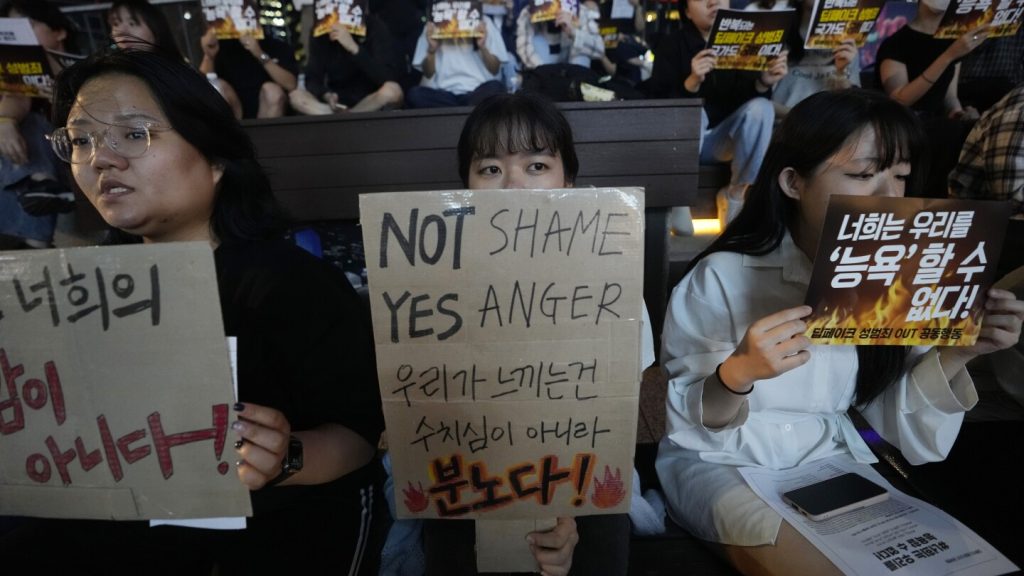In South Korea, a 30-year-old woman is still struggling with trauma three years after receiving fake images depicting her nude. The country is facing a deluge of non-consensual deepfake porn content, leading to a recent revision of the law to make watching or possessing such content illegal. Teenage boys are often the perpetrators of these deepfake crimes, targeting female friends, relatives, and acquaintances as a prank, out of curiosity, or misogyny. This trend is raising serious questions about school programs and exacerbating the already troubled relationship between men and women. Recent attention to the issue has led to protests, forums, and a crackdown by police.
Deepfake porn has become a widespread issue in South Korea, with the country being labeled as the most targeted by deepfake pornography. Factors contributing to the prevalence of deepfake porn in South Korea include heavy smartphone usage, limited sex education in schools, inadequate social media regulations for minors, and a culture that objectifies women. Victims of deepfake crimes report intense suffering, with some even attempting suicide due to the explicit content created without their consent. Lawmakers and activists are calling for stronger punishment for those involved in creating and distributing deepfake porn.
The woman interviewed by The AP shared her experience of receiving fake images on Telegram that combined her photos from Kakao Talk with nude images of strangers. The crude images were deeply humiliating for her, and she felt shocked that people she likely knew were sexually harassing her with these photos. The trauma from the incident has made it difficult for her to trust men and use a mobile phone without reliving the nightmare. Critics argue that authorities have not taken enough action to address the issue of deepfake porn despite a rise in online sex crimes in recent years.
Efforts to combat deepfake porn in South Korea have been met with challenges, including lenient court rulings that have resulted in minimal consequences for perpetrators. Despite calls for stronger punishment for digital sex crimes, many offenders have received suspended sentences, fines, or not-guilty verdicts. The gender divide in South Korea, coupled with workplace discrimination and mandatory military service for men, has contributed to the urgency of addressing the deepfake problem. Women in the country feel scared and helpless in the face of sex crimes that predominantly target them, leading to heightened tensions between men and women in society.
The deepfake problem in South Korea has gained urgency due to the country’s serious rifts over gender roles and workplace discrimination facing women. Critics argue that authorities have not taken enough action to address the issue of deepfake porn despite a rise in online sex crimes in recent years. Efforts to combat deepfake porn have been challenging due to lenient court rulings that have resulted in minimal consequences for perpetrators. The gender divide in South Korea, coupled with workplace discrimination and mandatory military service for men, has contributed to the urgency of addressing the deepfake problem. Women in the country feel scared and helpless in the face of sex crimes that predominantly target them, leading to heightened tensions between men and women in society.


